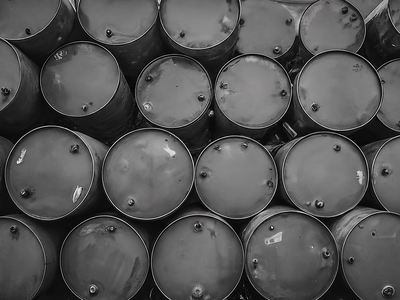ARTICLE AD BOX

The EU on Friday unveiled one of its most powerful sanctions against Russia, since the beginning of its war with Ukraine which is now in its fourth year. The sanctions include a reduced oil price cap, a ban on dealings linked to the Nord Stream gas pipelines, and fresh action against Russia’s shadow fleet of vessels, according to EU foreign policy chief Kaja Kallas.This move comes as European nations move to buy weapons from the US to help Ukraine better defend itself.The new measures include a reduction in the oil price cap from $60 to $45 per barrel, a ban on transactions involving the Nord Stream gas pipelines, and an expansion of restrictions on Russia’s so-called shadow fleet of tankers. Over 100 additional ships have been added to the EU's blacklist.“The message is clear: Europe will not back down in its support for Ukraine.
The EU will keep raising the pressure until Russia ends its war,” Kallas was qyoted as saying by AP.The European Commission, the EU’s executive arm, had initially proposed the lowered oil price cap to squeeze Russia’s energy revenues, a major financial lifeline for the Kremlin. Oil income continues to underpin Russia’s economy, funding its military operations while helping President Vladimir Putin avoid domestic inflation spikes and a currency collapse.
Although a $60 per barrel cap was previously imposed in 2023 by Ukraine’s Western allies, it had little practical effect at the time, as most of Moscow’s crude sold below that threshold. However, the EU sees the lowered $45 cap as a renewed attempt to dent Russian finances more substantially.The EU had sought to align the cap with the broader G7 bloc to maximise pressure, but rising global oil prices, fuelled in part by conflict in the Middle East, and the absence of support from the Trump administration hindered those efforts.In a significant step, the EU also moved to block any future revenue from the Nord Stream gas pipelines linking Russia and Germany, despite the fact they are no longer operational. The pipelines were the target of a major sabotage incident in 2022, the origins of which remain unresolved.To further tighten the financial noose, the sanctions package also targets Russia’s banking sector, aiming to limit Moscow’s ability to raise capital and carry out international transactions.
Two Chinese banks were included among the entities sanctioned.Russian oil giant Rosneft’s refinery in India was also hit by the new measures, part of a broader effort to curb the Kremlin’s energy partnerships beyond Europe.Sanctions have been piling up since Russia invaded Ukraine on 24 February 2022. So far, over 2,400 individuals and entities, ranging from government officials and banks to companies and organisations, have faced EU asset freezes and travel bans.However, reaching agreement on each successive round of sanctions is becoming more difficult. The latest package faced opposition from Slovakia, which relies heavily on Russian gas and raised concerns about further supply cuts.The previous round of sanctions, announced on 20 May, blacklisted nearly 200 vessels suspected of helping Russia sidestep existing restrictions. With Friday’s update, more than 100 additional ships have been added to the list, signalling Europe’s intent to cut off Russia’s alternative trade routes.



.png)
.png)
.png)
















 4 hours ago
7
4 hours ago
7









 English (US) ·
English (US) ·